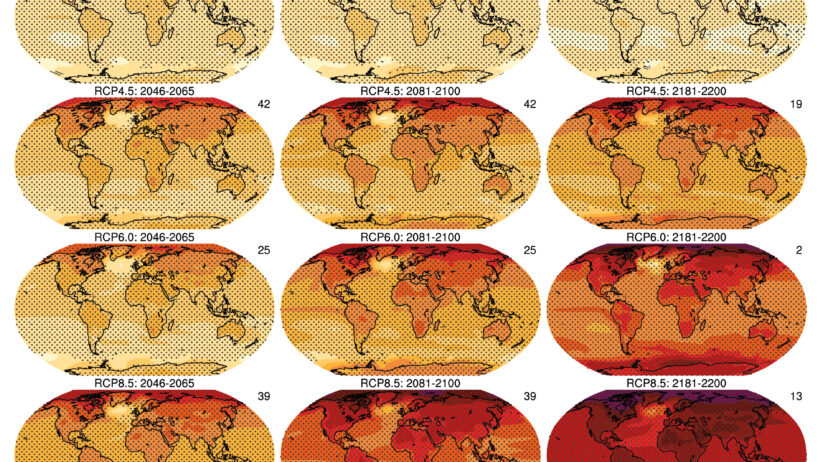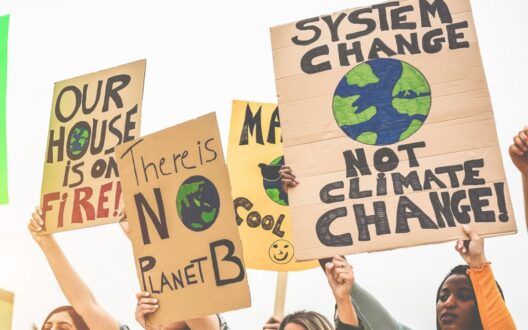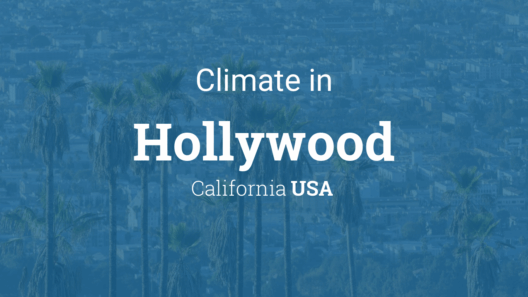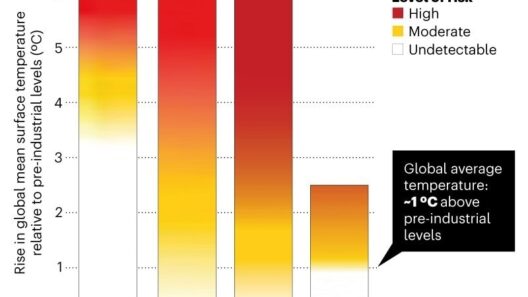The specter of climate change looms large over contemporary society, engendering a pervasive atmosphere of trepidation and uncertainty. With carbon emissions escalating, glaciers retreating, and extreme weather phenomena becoming more common, it is easy to succumb to despair. Many wonder: will climate change kill us? This question is laden with anxiety, but it is crucial to approach it with reasoned analysis rather than succumbing to untempered fear. Understanding the multifaceted implications of climate change, alongside pragmatic solutions, allows us to face the future with more optimism than dread.
Climate change is a scientific reality. It is no longer a distant threat; it is an ongoing phenomenon with observable effects. The Intergovernmental Panel on Climate Change (IPCC) reports unequivocally illustrate that global temperatures are rising, predominantly due to anthropogenic activities. This rise catalyzes a cascade of repercussions—melting ice caps, rising sea levels, and disruptive weather patterns. Yet, we must disentangle the myriad strands of fear from the solid fabric of facts.
First, let us explore the common perception that climate change is an unequivocal death sentence. The notion that climate change will evoke apocalyptic scenarios is deeply rooted in popular culture. Films and literature often paint a dystopian future where civilization crumbles under the weight of environmental catastrophes. This fear-based narrative can be enthralling, captivating our imaginations, yet it often oversimplifies the complexities of the issue. To consider solely the destruction without acknowledging the resilience of both humanity and the planet is to overlook significant truths.
The Earth has a remarkable capacity for regeneration. Ecosystems, while stressed, have demonstrated an ability to adapt to gradual changes. This resilience is emblematic of natural selection; species that survive are those that can acclimatize to their surroundings. Humanity, too, possesses remarkable adaptive capacity. Historically, societies have demonstrated ingenuity in the face of crises—developing agricultural practices in inhospitable environments, harnessing technology to mitigate dire conditions, and creating logistical frameworks to combat potential calamities. These adaptive responses are not merely historical anecdotes; they are pathways to navigating the waterlogged and scorching future that climate change presents.
Beyond adaptation, innovation fosters hope. Renewable energy technologies like solar and wind power are rapidly advancing, making them more affordable and accessible. The transition to a low-carbon economy is not just feasible; it is already underway. Countries worldwide are investing in sustainable practices, implementing policies that curb emissions, and setting ambitious goals for carbon neutrality. This movement is spearheaded by the understanding that not only is a sustainable future essential for survival, but it is also laden with opportunities for economic growth and job creation.
Furthermore, the moral obligation to address climate change cannot be understated. Our present actions have vital implications for future generations. The responsibility to act is not just about our survival; it is a testament to our humanity. Engaging with the facts reveals a pressing need for collective action—individuals, businesses, and governments must unite to forge a concerted approach. In this framework, fear transforms into motivation; each small action taken against climate change becomes a building block for a more sustainable world.
Nevertheless, it is important to engage critically with the narratives of both devastation and salvation. The fear surrounding climate change may compel individuals to act, but it can also lead to paralysis. With feelings of helplessness so pervasive, many individuals are left feeling overwhelmed and disconnected. Addressing climate change requires us to temper our anxieties with rational discourse, using facts to inform our actions rather than allowing fear to dictate behavior.
Scientific literacy plays a pivotal role in this endeavor. Communities plagued by misinformation often suffer the most from climate-related impacts. Educating oneself and others about the realities of climate change enables informed choices, influencing local, national, and global policies. Scientific knowledge encourages people to see beyond fear—transforming it into engagement and fostering a sense of community around shared goals.
Moreover, community initiatives provide an essential avenue for addressing climate change. Grassroots movements galvanize local stakeholders, uniting them under a common cause. From urban gardening projects that promote biodiversity and food security to conservation efforts aimed at protecting vital ecosystems, these efforts represent a collective response to the existential threats posed by climate change. Community-centric approaches have proven effective, showcasing the undeniable power of collaboration.
The digital age also affords incredible opportunities for connecting individuals and organizations dedicated to combating climate change. Social media platforms amplify the voices of activists, allowing messages of hope and action to resonate across borders. This global interconnectedness means that best practices can be shared instantly, creating a wealth of ideas from which all can learn. Knowledge—and action—spreads like wildfire in the virtual arena.
Despite the daunting challenges posed by climate change, it does not spell doom. It is merely a chapter in an ongoing narrative, but one that requires a collective commitment to understanding, innovation, and action. The specter of fear does not have to dictate our future; armed with facts and unwavering resolve, humanity can chart a path away from disaster.
In conclusion, climate change is an imminent threat requiring urgent action. Yet, instead of succumbing to fear, we can embrace the facts, harnessing our ingenuity and resilience. The question should not be whether climate change will kill us, but rather, how we will choose to respond to safeguard our world and future. In a landscape characterized by both challenges and opportunities, we are tasked with rewriting the narrative—one not dominated by fear, but by informed hope and collective empowerment.







